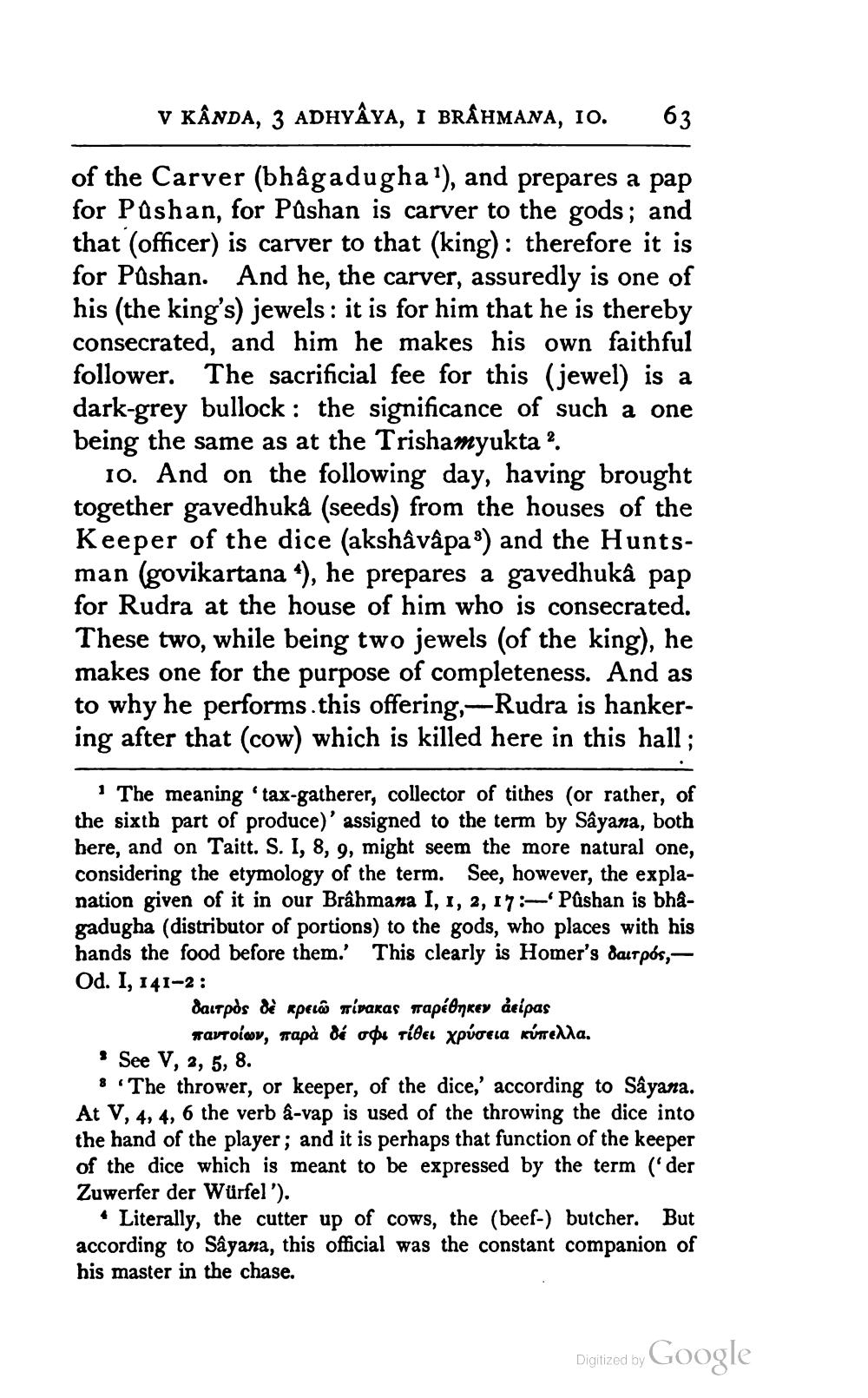________________
V KÂNDA, 3 ADHYÂYA, I BRÂHMANA, 10.
63
of the Carver (bhagadugha '), and prepares a pap for Pashan, for Pushan is carver to the gods; and that (officer) is carver to that (king): therefore it is for Pushan. And he, the carver, assuredly is one of his (the king's) jewels : it is for him that he is thereby consecrated, and him he makes his own faithful follower. The sacrificial fee for this (jewel) is a dark-grey bullock: the significance of such a one being the same as at the Trishamyukta ?
10. And on the following day, having brought together gavedhukà (seeds) from the houses of the Keeper of the dice (akshâvâpa) and the Huntsman (govikartana 4), he prepares a gavedhukâ pap for Rudra at the house of him who is consecrated. These two, while being two jewels (of the king), he makes one for the purpose of completeness. And as to why he performs.this offering,~Rudra is hankering after that (cow) which is killed here in this hall ;
1 The meaning tax-gatherer, collector of tithes (or rather, of the sixth part of produce)' assigned to the term by Sâyana, both here, and on Taitt. S. I, 8, 9, might seem the more natural one, considering the etymology of the term. See, however, the explanation given of it in our Brâhmana I, 1, 2, 17:- Pushan is bhagadugha (distributor of portions) to the gods, who places with his hands the food before them. This clearly is Homer's darpos, - Od. I, 141-2:
δαιτρός δε κρειώ πίνακας παρέθηκεν αείρας
παντοίων, παρά & σφι τίθει χρύσεια κύπελλα. See V, 2, 5, 8. 8 "The thrower, or keeper, of the dice,' according to Sâyana. At V, 4, 4, 6 the verb a-vap is used of the throwing the dice into the hand of the player; and it is perhaps that function of the keeper of the dice which is meant to be expressed by the term 'der Zuwerfer der Würfel').
• Literally, the cutter up of cows, the (beef-) butcher. But according to Sâyana, this official was the constant companion of his master in the chase.
Digitized by Google




